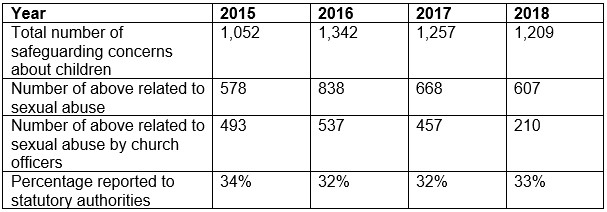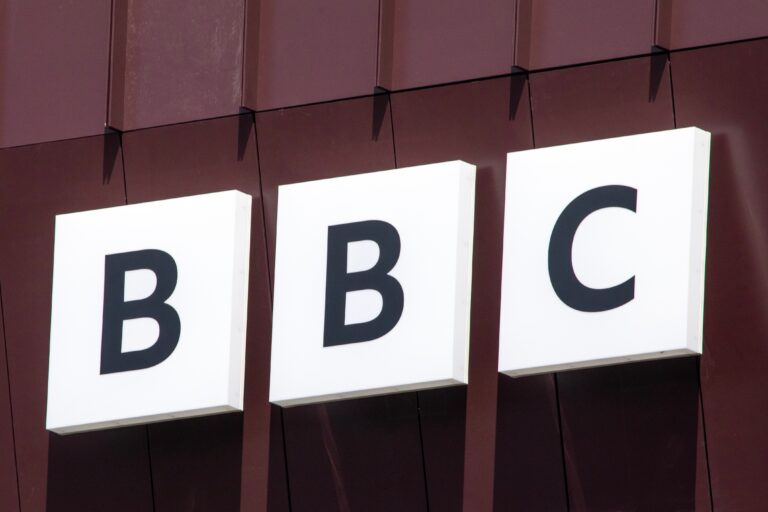Church of England propose the introduction of a pilot redress scheme to compensate survivors of child sexual abuse
After two and a half years of hearings, involving the testimonies of many survivors, the Independent Inquiry into Child Sexual Abuse (IICSA) has finally released its report on sexual abuse within the Church of England. The full report can be accessed here.
The damning report combines the extensive findings made by IICSA, which show that the Church of England has failed to provide safeguarding measures and has failed to respond properly to reports of sexual abuse for many years. The report paints a picture of a system which has not only failed to protect the vulnerable, but has allowed perpetrators to hide and avoid punishment.
Church officials have vowed to overhaul the system for safeguarding and supporting victims and survivors, but will the measures go far enough?
Statistics
The numbers set out in the report highlight huge problems around sexual abuse within the Church. A total of 390 clergy members and other church leaders were convicted of abuse between the 1940s and 2018. It is likely that this only represents the tip of the iceberg, with many victims feeling unable to come forward and abusers often not being reported to the authorities.
The money the Church of England spends on safeguarding has increased significantly since safeguarding investigations began in 2013. The table below shows the Church’s increased spending on safeguarding between 2013 and 2018:
The budgeted spending was expected to increase even further in 2019 and 2020, with this year’s safeguarding budget reaching £3,189,000.
However, the increased spending has not necessarily fixed the deeply ingrained issues within the Church. The table below shows that vast numbers of safeguarding issues continued to be reported, with a worryingly low proportion being reported to authorities:
Key issues:
The report highlights what it believes to be the key issues which have led to such a prevalence of sexual abuse by clergymen. The report highlights the following issues and explains how they have caused a culture of abuse:
- Clericalism – The moral authority of the clergy is seen as beyond reproach
- Tribalism – Perpetrators are often defended by their peers. Whilst survivors are disbelieved, discredited and not supported after disclosing abuse
- Naivety – Reports were often dismissed as impossible due to faith in religious practices
- Reputation – The primary concern of many senior clergy members was to uphold the church’s reputation, which was prioritised over victims and survivors
- Sexuality – A culture of fear and secrecy around sexuality made it difficult to challenge sexual behaviours
In light of the systemic issues highlighted in IICSA’s investigation, they make a number of important recommendations to the Church, which include:
- Structural changes, including the introduction of a Diocesan Safeguarding Officer to make safeguarding decisions independently of the Diocesan Bishop
- Changing and improving the way it responds to safeguarding complaints, including the introduction of a mandatory “code of practice” for handling safeguarding issues and reintroducing a rule to expel any member of the clergy found guilty of child sexual abuse offences
- Increased support for victims to include a church wide policy on the funding and provision of support to victims and survivors
Civil claims and redress scheme
One of the key recommendations to come out of the Inquiry, is that the Church should increase support and funding for support of victims. This is something the Church appear to have taken on board, as plans to introduce a redress scheme for survivors of abuse have been announced this week. This will begin with a small pilot scheme.
The pilot scheme would initially involve ten survivors of abuse within the Church, whose disclosures of abuse are considered to have been handled particularly badly. The pilot scheme would then inform the development of a full redress scheme, with compensation likely to include:
- Cash payments;
- Financial counselling;
- Therapeutic support; and
- Seed funding to help with employment
Whilst the introduction of additional funding for compensation and a simpler means of claiming is a welcomed change for survivors, it is important that the proposed scheme does not disadvantage survivors from accessing existing methods of support and compensation.
The decision to bring a civil claim is one that is not taken lightly by survivors and the claims process can be stressful. The scheme should be run in a way which provides improved financial recompense, whilst avoiding further trauma for those claiming. The scheme should not prevent survivors from seeking legal representation from firms like Bolt Burdon Kemp, who are able to support and advise them throughout the claims process.
Survivors considering bringing a claim against the Church of England should remember that civil claims are already a possibility and they do not need to wait for the scheme to be fully rolled out before bringing a claim. Bolt Burdon Kemp have successfully represented many survivors in claims against the Church of England for sexual abuse and will continue to do so.











